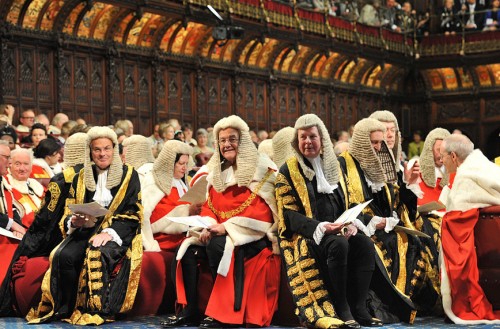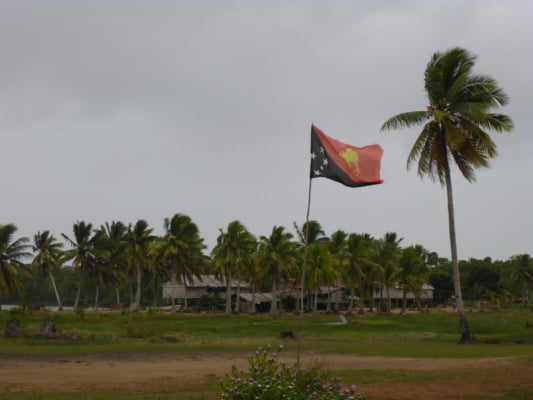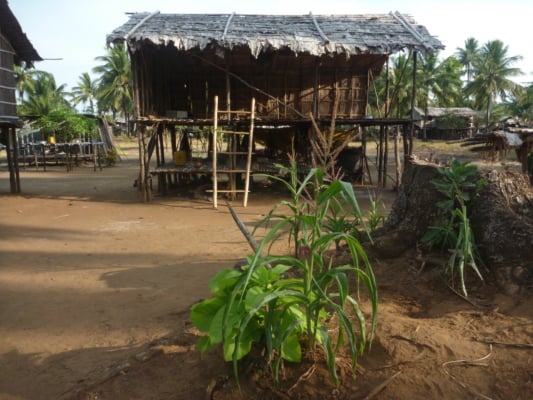Image: Judges in the Lords chamber, UK Parliament (Parliamentary copyright/Catherine Bebbington).
Some strikingly parallel questions are being asked in my own discipline of anthropology and by those examining how donors and practitioners can think and work politically with developing communities.
Those parallels struck me again at a recent international workshop organised by Jessie Sklair and myself at the University of Sussex. Elites were the focus of our discussion; we considered the dilemmas – and opportunities – involved in carrying out ethnographic work among elites, rather than among the less powerful groups that are traditionally the anthropologist’s subject of study.
We wanted to ask ourselves how we should balance our obligations, both to these elite groups, and to those whose lives may be affected by their political agency. When can – or should – ethnography produce critique, confrontation, or collaboration? Or does the hospitality that ethnography depends on make working for political change impossible?
Similar questions have emerged from DLP’s work on Thinking and Working Politically. As Niheer Dasandi, Heather Marquette and Mark Robinson asked in a recent Research Paper, drawing on Brian Levy’s work: “What does ‘working with the grain’ mean when, for example, ‘the grain’ – whatever that may be – includes deeply entrenched patriarchy?”
Anthropology has long had a rather awkward relationship with development. In a much-cited paper published a quarter of a century ago, but still frequently used in undergraduate teaching, Arturo Escobar questioned the trend for anthropologists to work as consultants for international donor agencies. How, asked Escobar, could anthropologists fulfil their ethical obligations to those whose hospitality made their research possible, and make that research available to donors?
Today there are some anthropologists, like Elizabeth Harrison, who question the turn to ethnographies of ‘Aidland’ – especially where these may focus more on the personal lives of Aidlanders, and less on the aims and outcomes of development work.
Yet there are strong parallels between the shift toward studying the everyday politics of ‘Aidland’ in anthropology, and DLP’s work on ‘Thinking and Working Politically’ in development programming. In ‘Everyday Political Analysis’, David Hudson, Heather Marquette and Sam Waldock make the case for political analysis that forces us “to shift our focus from the poor, program beneficiaries and / or their representatives and instead concentrate on the powerful … we need to look beyond our usual focus on the poor and their (claimed) representatives, and ask who or what is key to effective change.”
Ethnographic work offers an opportunity to provide insights into precisely those “types of power structures, such as gender, religion, ethnicity, class and rural-urban divides” that shape the bearing of politicians and bureaucrats, and so affect policies and inequalities.
So, for instance, Tijo Salverda, one of the Sussex workshop participants, has carried out research among the Franco-Mauritian elite, and introduced the notion of ‘defensive power’ to explain how this group has responded to a decline in political influence.
And if ethnographic work can inform an understanding of the political context required for Thinking and Working Politically in development programming, it can also provide rich insights into the organisational contexts in which policies are made or interrupted. Emma Crewe, another contributor to the Sussex workshop, has used the tools of ethnography to examine the workings of the UK’s House of Lords and the House of Commons.
For Crewe, accounts of politicians based on ‘rational actor’ models will not do; she uses an ethnography of manners and rituals in the upper house to illuminate the reasons why peers in the Lords so often vote with their party whips – when there is little chance of peers losing their position if they rebel, and political ‘career advancement’ is not a significant factor.
Peers subscribe to a curiously egalitarian ideology, and the self-regulation of speeches in the Lords means that those who interrupt may find themselves snubbed in the corridors or by an exodus from the debating chamber as they speak. The ritualised ‘polishing’ of parliamentary debate transcripts in Hansard adds to this pressure and party lines emerge as an axis of belonging and competition in a context where “ritual emerges as integral to the political process and not a mere servant to it.”
Ethnographers are occasionally accused of ‘going native’ when they study with elites – and sometimes this may be true. Equally, if they are critical of those elites, they might be accused of falling short of an ethnographic ideal that says anthropologists “are not needed to add ‘critique’, moral injunction, or higher meaning” to the accounts given by their informants.
Yet ethnographic work may well be able to help inform an understanding of the obstacles that reform might face in a particular political and organisational context. Crewe’s ethnography of the House of Commons obviously differs in tone from the recent report calling for a ‘New Magna Carta’ in the UK. But a key concern of that report is that “basic rules about British government do not at present exist in any legal form at all, but rely instead on unwritten understandings or traditions”. Most are “inaccessible or unintelligible to ordinary people” – and this only reinforces the importance of ethnographic work that reveals how ritual emerges as integral to the political process.
It remains, perhaps, up to the individual anthropologist to determine what kinds of policy ‘ends’ will be kept in mind during research in novel elite contexts. Those dependant on the hospitality of influential political elites continue to have ethical obligations to their ‘informants’. Yet, as Mark Sanders has argued, social research always involves a tension between the “parochial filiation or affiliation” that might arise from ethnographic fieldwork, and a far broader sense of responsibility to ‘wider society’. When anthropologists ‘study up’ and work among those whose decisions affect policies and inequalities, then thinking about and practising ethnography ‘politically’ may become more of a necessity than a choice.










